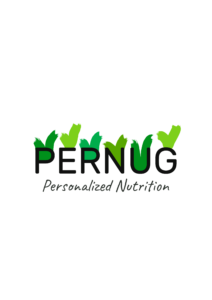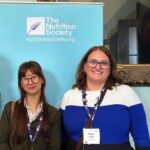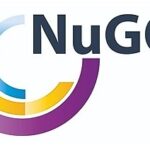Active projects
national
first row hidden
Your content goes here. Edit or remove this text inline or in the module Content settings. You can also style every aspect of this content in the module Design settings and even apply custom CSS to this text in the module Advanced settings.
Food Safety Network 2022-2024
The UK Food Safety Research Network connects food industry, food and health policymakers and academia to collaboratively pursue shared research priorities that will protect the UK from foodborne hazards.
The network is hosted by Quadram Institute funded by BBSRC and the Food Standards Agency and serves as an innovation hub to coordinate and fund cross-sectoral research and training activities that address current and emerging challenges.
We are currently scoping our network activities and updates will be provided on this page pending the launch of the network’s dedicated website.
The network’s objectives are to:
- assemble a community of UK food producers, food policy makers and scientific researchers who collectively can take robust actions toward improving food safety
- identify areas of research need and opportunity that, in the view of food stakeholders and network members, will have meaningful impacts on UK food safety
- coordinate new collaborative research activities that will promote the application of science towards the food safety challenges identified by our food system community
- host training to promote skills development, interoperability and relationship-building between our food system community
- translate the knowledge generated within the network to food safety stakeholders, and to upcycle existing information and technologies relevant to food safety that have not yet been applied more broadly
The network is led by Quadram Institute group leaders Dr Matthew Gilmour and Dr Maria Traka.
InFLAIM - NIHR - National Institute for Health and Care Research 2024/2028
Inflammation, nutrition, and the evolution of multiple long term conditions – an AI-based analysis of intersectionality in longitudinal health data (the InflAIM project).
The focus will be to look at statistical and computing methods that can be applied to data over a long time period of time, developing several new computing approaches that our team has been working on and will now implement in this study.
DESIGNA ( Versus Arthritis) 2023/2025
AI-based analysis of intersectionality in longitudinal health data (the DESIGNA Study).
Plants for Health (KEW Gardens) - Welcome Trust Biomedical Resources Grant 2023-2026
Plants for Health: a catalogue of plant-derived products and ingredients for food, nutrition and health.
International
first row hidden
Your content goes here. Edit or remove this text inline or in the module Content settings. You can also style every aspect of this content in the module Design settings and even apply custom CSS to this text in the module Advanced settings.
Zero Hidden Hunger - Innovate UK 2024/2027
Zero Hidden Hunger EU, a new, multi-partner European consortium led by University College Cork, has received funding for groundbreaking research into tackling micronutrient deficiency over the next four years.
The Quadram Institute will be contributing its expertise to the project, looking in particular at bioavailable iron and zinc in current diets, and how this may change in the future.
Micronutrient deficiency, a widespread form of malnutrition, poses significant challenges to human health and development across Europe. Recognising the urgency of this public health issue, the Zero Hidden Hunger EU project is set to revolutionise our understanding and response to micronutrient deficiencies.
Micronutrient deficiency arises from the inadequate intake or absorption of essential minerals and vitamins. It can impact anyone, but at particular risk are children, adolescents, pregnant women, older adults, immigrant communities, and those affected by social inequalities. Despite its prevalence, addressing this issue effectively requires comprehensive data on the prevalence of microntrient deficiencies prevalence and their underlying causes.
Zero Hidden Hunger EU aims to fill this critical gap by pursuing two primary objectives:
- Estimating Prevalence and Health Costs: The project will generate accurate measures of micronutrient deficiency prevalence using priority biomarker and intake data from diverse European populations. By focusing on high-risk groups, marginalized communities and vulnerable populations, the project aims to uncover the true extent of the issue and its associated health costs.
- Developing Tailored Solutions: Armed with robust evidence, the project seeks to develop context-specific, food-focused strategies to ensure adequate micronutrient intake from sustainable sources. By leveraging existing data resources, biobanks, and targeted studies, the consortium aims to deliver tailored solutions that address the root causes of micronutrient deficiencies across Europe.
Zero Hidden Hunger EU will employ cutting-edge techniques, including high-throughput biomarker analysis and advanced data modelling, to generate credible evidence. This evidence will empower policymakers and food system actors to implement targeted interventions and eradicate micronutrient deficiencies from Europe.
The Quadram Institute is an associate partner in Zero Hidden Hunger EU and will be looking at two key micronutrients where deficiencies are already prevalent: iron and zinc. They will carry out, for the first time, an assessment of how much bioavailable iron and zinc we are currently getting from our diets. They will then use advanced modelling techniques to estimate how this may change with dietary shifts, for example switching to more plant-based diets.
FLAVOURFERM - Horizon Europe 2024/2028
FLAVOURFERM aims to optimize, demonstrate, and deploy fermentation technologies to unlock the flavor potential of plant-based foods and respond to consumer demand for tasty, nutritious, and healthy plant-based products. Precision fermentation, biomass fermentation, and traditional fermentation techniques will be optimized to improve the sensory properties (flavor and texture) as well as the protein content and bioavailability in plant-based foods. Innovative fermented foods will be developed by incorporating ingredients from the optimized fermentation techniques into food products. The production will involve animal-free recombinant casein obtained by precision fermentation, as well as fungal mycelia obtained from legume fermentation, to produce an array of novel food products in three business cases: plant-based cheese, plant-based meat, and plant-based milk. All novel ingredients and final products will be scaled-up and produced at pilot and pre-commercial scale in collaboration with industrial partners, which include both innovative SMEs and established manufacturers from different EU regions.
Quadram Institute are leading on WP4 and task leaders for WP7.
Completed Projects
National
first row hidden
Your content goes here. Edit or remove this text inline or in the module Content settings. You can also style every aspect of this content in the module Design settings and even apply custom CSS to this text in the module Advanced settings.
FoodBud - 2022/23
Foodbud is a machine learning based food recommendation platform that provides its users personalised food recommendations based on their food allergies, dietary and taste preferences.
The Food and Nutrition NBRI team supported Foodbud in nutritional analyses of selected recipes as well as retrieving allergen information, using resources such as the Composition of foods integrated dataset (CoFID).
The Food and Nutrition NBRI team have been selected by FoodBud to deliver this based on their expertise in the project area and previous engagements.
AFN Network - UKRI 2023/2024
The AFN network enables academics and stakeholders to work together to create a shared understanding of the range of global contexts the UK agri-food sector may face over the coming decades. The network are exploring pathways for a variety of scenarios to reach net zero through a sustainable UK agri-food system, bringing benefits for livelihoods, biodiversity and ecosystems. It will also establish a prioritised set of critical research questions that need to be tackled to maximise progress along the pathways.
Our role will be the development of a sustainability data map for the UK diary food chain is the UK on track to achieving net zero within the dairy food chain.
More information about the network found on the website
This project was completed in January 2024. Laura Bardon is currently working with partners to publish the report from this project. The report will be published on Zonodo in due course.
Valley Crops 'The Little Inca' project - Innovate UK 2024
Food and Nutrition- NBRI have supported the development of a healthy range of baby food by providing comprehensive analysis of its nutritional composition, its bioactive contents and their bioavailability.
The team looked at the composition of the different ‘Little Inca’ recipes and put together a comprehensive nutrition profile, completed with targeted analysis for selected nutrients of significance in infants e.g. vitamin C, D, amino acid composition etc. The analysis showed that Little Inca products provided essential macronutrients to support healthy infant growth. The Little Inca range is based on quinoa, which provides a superior range of amino acids compared to other plant-based protein sources.
The products were all high in fibre, which will foster gut health and immune support by promoting the development of short-chain fatty acids (SCFAs), which are essential for early microbiome formation. This means the products which will support the development of a healthy population of gut microbes and promote long-term gut health and benefit cognitive development.
Overall, Little Inca’s baby foods provide a well-balanced source of nutrition rich in plant-based proteins, essential nutrients and are high in bioactive compounds, which we would expect would support baby’s gut health and immunity and also deliver long term benefits during development. We were delighted to be part of this project and would like to wish ‘Little Inca’ the best for the future.
EFSA FCD - 2022/25
EU FCDB Open aims to design, develop, and deliver an Open Access European Food Composition Database for at least 16 European countries covering generic foods, fortified foods and food supplements mapped to FoodEx2 (Exposure hierarchy) including all relevant facets, A quality system will be developed to provide EFSA and expert users with more confidence in using the values for risk benefit and other nutritional research.
Food Museum - UKRI 2023/2025
We are working with the Food Museum, Norse Catering and the School Meals Service Project to launch a major exhibition at the Food Museum on the theme of school dinners. From nutrition and popular culture to government policy and campaigners, the exhibition will take you on a journey to explore the past, present and future of school food.
The Food and Nutrition NBRI team worked with the Food Museum in Stowmarket, to bring school dishes from over the years to life, by sharing expertise in Nutritional data analysis, by evaluating how amounts of key nutrients such as fibre, protein, iron and calcium have changed.
To find out more about how the team looked at the nutrition of school dinners, you can read the our latest blog here
The exhibit will be running from 2nd April 2025 – 21st February 2027. We can assure you that this exhibit will bring back some nostalgic memories from your school days. Details on the exhibit can be found on the Food Museum website.
International
first row hidden
Your content goes here. Edit or remove this text inline or in the module Content settings. You can also style every aspect of this content in the module Design settings and even apply custom CSS to this text in the module Advanced settings.
FNS-Cloud (Food and Nutrition Security) - 2019/23
The Food Databanks team are part of FNS-Cloud, http://www.fns-cloud.eu/, a four-year EU-funded Horizon 2020 project (from 1st October 2019), which includes 35 partners across Europe and will also involve collaborations with other researchers at QIB. The project aims to bring together data across a variety of research domains linked to Food and Nutrition Security (FNS), such as diet, health, consumer behaviour and agriculture, and to improve access and use of the data via ICT cloud infrastructure and services, which will also be integrated with the European Open Science Cloud initiative. The project is led by RTDS in Austria with Paul Finglas as the Scientific Coordinator.
The Food Databanks team leads Work Package 5: Demonstrators, which is designing, implementing and testing a number of Demonstrators to showcase the FNS Cloud functionality and resources. QIB is also currently undertaking a pilot study (DIME study) to generate microbiome and diet data for the Cloud, which will also be utilised as a Demonstrator.
Project aims
FNS-Cloud will contribute to overcoming European research infrastructure fragmentation by uniting FNS data essential for addressing diet, health, and consumer behaviour as well as sustainable agriculture and the bioeconomy. The implemented cloud solution will reduce knowledge gaps that inhibit public health and agricultural policy and will benefit the food industry, reducing development and production costs and will facilitate informed consumer choice and ultimately, healthier European citizens. Sustainability of the FNS Cloud will be achieved through value added services linking research infrastructure data. FNS Cloud data will be open access and FAIR (findable, accessible, interoperable and re-useable) and will be interoperable with other proposed/existing Research Infrastructures such as FNH-RI, MetroFood and ELIXIR. The four identified scientific and technical objectives are to: 1) develop, integrate and test innovative cloud services; 2) implement and test ‘cloud platform’ (FNS Cloud), Use cases and Demonstrators; 3) integrate different existing and emerging data, sources and formats; and 4) develop a governance model and business operations.
FNH-RI (Food Nutrition and Health Research Infrastructure)
The Food Nutrition and Health Research Infrastructure (FNH-RI) is an initiative to develop a European research infrastructure relevant to Food, Nutrition and Health that will uniquely link the data and expertise in the research domains of the food supply chain, consumer behaviour and health, through sharing and integrating data, tools and services, and focussing on active contribution of consumers and citizens to generate data. Existing international RIs in food and health do not currently cover such diverse research themes, and do not utilise online technologies to harness consumer and citizen generated data.
The RI will be structured as a series of National Nodes, each representing the national organisations undertaking research in the relevant domains. FHN-RI already has the backing of The Netherlands, Denmark, Slovakia and Italy, where Member States’ Ministries of Science have committed to supporting these National Nodes. The UK was one of the four countries that initiated the FNH-RI concept and is a leading ‘potential partner’ due to the advanced status of nutrition and food science in the country. Our participation in the FNH-RI proposal was recently supported by three of the UK Research Councils.
The Food Databanks National Capability team is co-leading the development of the UK National Node with the University of Surrey. To initiate activities, an introductory workshop was held in London in July 2019 at the MRC Conference Centre, and a number of online workshops have been organised since to develop the UK participation. A total of 20 UK partners across a variety of research domains have now expressed an interest in being part of the UK Node of FHN-RI (https://fnhri.eu/about/national-nodes/united-kingdom/. The FNH-RI concept has been submitted to the European Strategy Forum on Research Infrastructures (ESFRI) for consideration for the 2021 Research Infrastructures Roadmap, and the UK Node is currently exploring opportunities to fund initial activities for further establishing the initiative.
If you are interested in finding out more about the FNH-RI UK National Node development, please contact us at FNH-RI@quadram.ac.uk.
PERNUG (personalised and connected food service providers) - 2020/22
 PERNUG project, an EIT-Food Innovation Activity that aims to develop affordable kitchen vertical garden units with the capacity to improve nutritional intake of key micronutrients for consumers via biofortification of domestically grown fresh produce, such as herbs and salads.
PERNUG project, an EIT-Food Innovation Activity that aims to develop affordable kitchen vertical garden units with the capacity to improve nutritional intake of key micronutrients for consumers via biofortification of domestically grown fresh produce, such as herbs and salads.
The current plant supply chain is often centralised, wasteful and environmentally damaging, with plant produce that is low in nutritional quality and freshness due to lengthy supply chains. Domestic hydroponic vertical garden units offer consumers the opportunity to grow produce in their home all year round, ensuring absolute freshness and quality of the produce. It is possible to tailor the specific plant species or variety to the nutritional needs of the user, and to further improve intake of specific micronutrients via biofortification. This process involves supplementing the plant growth media with additional micronutrients, such as iron and vitamin B12, to produce naturally fortified plants ready for consumption.
Together with project partners at KU Leuven and StudioKapp, and in collaboration with the QIB team led by Paul Kroon https://quadram.ac.uk/paul-kroon/, we will design and test affordable garden units, develop personalised seed and growth media collections, create tailored recipes to help users incorporate the produce in to dishes and to address their dietary needs, and create a bespoke app to manage the garden units and deliver recipes to the user.
The FDNC team will lead the work to develop recipes for the consumer, utilising the fresh biofortified produce grown in the garden units, as well as compiling recipes that contain other foods that are naturally rich in the micronutrients of interest.
Personalised and Connected Food Service Providers - 2020/22
Personalised and Connected Food Service Providers (Project ID 20291)
PERSFO is our second EIT-Food funded project, following on from Quisper (2018-19). The project aims to deliver personalised nutrition advice direct to consumers in their workplace, taking in to account the daily menu and catering options that are available to them from the service provider. The advice and menu information will be delivered via a smartphone application linked to the PERSFO platform. The workplace can be a stressful environment, which can often lead to poor food choices by workers – PERSFO aims to encourage users towards more healthy dietary choices at work using a specifically designed recommender system, and by utilising a connection to the Quisper personalised nutrition platform, thereby building on the outputs of our previous project.
The FDNC team are managing the project, which is composed of a small team of diverse partners (KU Leuven, Sodexo, Alberts, EuroFIR and shiftN (2020 only)). Despite the difficulties posed by COVID-19, the project made great progress in 2020, with the recommender system and app designed via a series of consumer-led sessions. The initial version of the PERSFO architecture is complete, and the links to Quisper resources have been tested. In 2021, the primary task is to test the fully integrated and improved PERSFO system in a work-place environment (in Belgium) to ascertain the effectiveness of the concept in facilitating dietary improvements. Ultimately, it is hoped that PERSFO can be offered as a commercial tool to support employee wellbeing.
Further information about PERSFO can be found here.
Personalized and connected food service providers (PERSFO, Project ID 20291) has received funding from EIT Food, the innovation community on Food of the European Institute of Innovation and Technology (EIT), a body of the EU, under Horizon 2020, the EU Framework Programme for Research and Innovation.
first row hidden
Your content goes here. Edit or remove this text inline or in the module Content settings. You can also style every aspect of this content in the module Design settings and even apply custom CSS to this text in the module Advanced settings.
EIT Food MOOC (Massive open online course) 2020
The Human Microbiome: Online Course
Food Databanks, teamed with a consortium of food scientists, food microbiologists, nutritionists and medical doctors, have received EIT-Food funding to create a massive open online course (MOOC), The course, which starts on 30th November 2020, is for anyone interested in subjects related to the human microbiome, how food can influence it, and how this may impact on human health. Find out more and sign up for free to join the course here: https://www.futurelearn.com/courses/the-human-microbiome. The online course, “The Human Microbiome”, will have a 3-week duration and has an aim to deliver a clear, simple and scientifically based message to the general public on the importance of the human microbiome in human health in connection to food.
There is a wealth of knowledge within the Quadram Institute we will call upon to create interesting and informative articles, quizzes, infographics and videos. These include; early life microbiota,; the influence of different food components on the gut microbiome; and microbiota used to treat and prevent severe infections.
The project is being coordinated by the University of Turin, and includes partners from The University of Reading, CSIC (Spanish National Research Council) and Microbion (a company that innovative products in the field of agro-industrial microbiology).
REFRESH 2020
REFRESH Resource Efficient Food and dRink for the Entire Supply cHain” (REFRESH) is an EU research project taking action against food waste. 26 partners from 12 European countries and China work towards the project’s goal to contribute towards Sustainable Development Goal 12.3 of halving per capita food waste at the retail and consumer level and reducing food losses along production and supply chains, reducing waste management costs, and maximizing the value from un-avoidable food waste and packaging materials.
FDNC were partners in the project and led a work package on ‘Valorization of waste streams and co-products’. Key tasks will be to identify waste streams that have significant environmental impact to enable development of the most effective approaches to ensure that waste streams can be significantly reduced through improved chain management and business and consumer behaviour. FDNC’s main role will be to develop a compositional database which provides users with access to biochemical composition of agri-food chain waste streams in order to identify market opportunities.
EIT Food / Quisper 2018/2019
Quality Information Services and Dietary Advice for Personalized Nutrition in Europe
The Food Databanks National Capability at Quadram Institute Bioscience (QIB) is leading an international project to develop a digital platform that will enable effective delivery of scientifically-validated nutrition advice across Europe, giving everyone the confidence to make more informed diet choices.
The project

The goal of the EIT Food-funded project, Quisper®, is to put in place a digital platform that provides scientifically-validated nutrition data and services to organisations that can be used to create and deliver effective personalised nutrition services for consumers and patients across Europe.
To maximise outreach and trust, Quisper®, which involves partners that include Pepsico and the University of Munich, will be managed as a non-profit association and will be informed by a scientific advisory board.
In collaboration with the University of Reading, an improved version of the E-Nutri mobile app, which provides personalised dietary advice using individual preference, diet and lifestyle, will be integrated into the platform along with information such as data from national food composition databanks, dietary reference values, consumer-perceived food attributes and diet-quality scores.
Data, tools and technology from ‘Small to Moderate sized Enterprises’ (SMEs) will also be integrated into the platform, helping them achieve wider audiences for their products. It is anticipated that these companies may sell their improved services to parties such as insurance, public healthcare, hospitals, medical professionals, dietitians, nutritionists, wellness / fitness centres, employers and retailers that will provide information and services for the public and other businesses, such as app interface providers, household appliance industry, analytical laboratories, diagnostics industry and the medical appliance industry, which could profit from the services provided.






